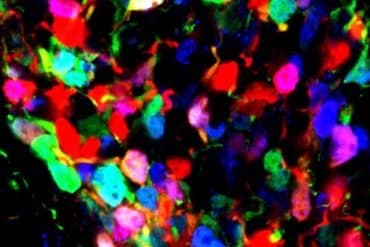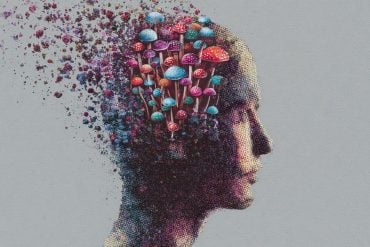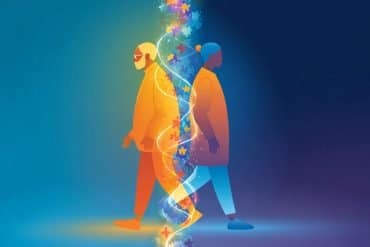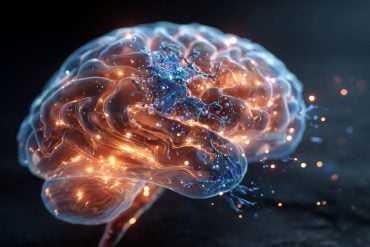Summary: A new study has identified five distinct “sleep-biopsychosocial” profiles that connect how we sleep with our brain networks, mental health, cognition, and lifestyle. Using data from over 700 participants, researchers found that different sleep patterns—ranging from poor quality to resilience and short duration—each showed unique neural connectivity patterns.
For instance, those with poor sleep displayed stronger links between attention and sensorimotor networks, correlating with anxiety and depression. The findings show that sleep is far more complex than just duration, with each sleep profile reflecting a unique signature in both the mind and brain.
Key Facts:
- Five Distinct Sleep Profiles: Identified through a data-driven analysis linking sleep traits, brain function, and mental health.
- Mind–Brain Connection: Each profile correlated with distinct brain network connectivity patterns.
- Personalized Insight: May help tailor clinical approaches for sleep, mental health, and cognitive support.
Source: PLOS
Researchers led by Aurore Perrault at Concordia University, Canada and Valeria Kebets at McGill University, Canada, have used a complex data-driven analysis to uncover relationships among multiple aspects of sleep and individual variation in health, cognition, and lifestyle.
Published on October 7th in the open-access journal PLOS Biology, the study reveals five sleep-biopsychosocial profiles and their associated patterns of functional connectivity among brain-regions.
Most studies of sleep focus on a single aspect, such as duration, and examine how it relates to a single outcome, like poor mental health. However, trying to understand and predict outcomes by combining the results of many different single-association studies invariably fails.
Video Credit: Neuroscience News
The new study by Perrault and team takes a different approach. Using a sample of 770 people from the Human Connectome Project dataset, they conducted a multivariate, data-driven analysis.
Because the dataset contains details about each person’s sleep characteristics, as well as brain imaging data and biopsychosocial data, the analysis was able to find relationships among all these factors that had not been discovered before.
The study uncovered five sleep-biopsychosocial profiles. The first was generally poor sleep, and was related to worse psychopathology, including depression, anxiety, and stress.
The second was characterized by sleep resilience because greater psychopathology, especially attentional difficulties, were not associated with reports of poor sleep.
The remaining three profiles were more specific. For example, one was characterized mostly entirely by sleep duration, with short durations associated with poorer cognition.
Each of the five profiles was associated with a unique brain-network organization. For example, for people who fell into the first profile, resting-state functional connectivity between subcortical brain regions and both the sensorimotor and attention networks was high. Knowing these profiles will allow clinicians to provide better individualized treatments and support for their patients.
The authors add, “Sleep is made up of many dimensions, not just how long we sleep. By analyzing more than 700 young adults, we discovered five distinct ‘sleep profiles’ based on reports of sleep duration, presence of disruptions, use of sleep medications.
Each profile carried its own distinctive link in health, lifestyle, and cognition, and even showed unique neuroimaging traits using functional MRI.”
“Our study showed that different aspects of sleep are related, but can also be separable domains with specific connections to biopsychosocial factors (lifestyle, mental and physical health and cognitive performances).
“This highlights the importance of considering the full picture of an individual’s sleep to help clinicians make more accurate assessments and guide treatment,” states Aurore Perrault.
“The dominance of mental health markers in most of the profiles is not surprising as sleep is one of the five key domains of human functioning likely to affect mental health,” says Valeria Kebets.
“The different sleep profiles were also supported by unique patterns of brain function measured with MRI, suggesting that sleep experiences are reflected not just in health and behavior, but also in the brain’s wiring and activity,” notes Aurore Perrault.
Key Questions Answered:
A: Unlike typical studies focusing on one sleep factor, this multivariate approach examined dozens simultaneously, revealing new multidimensional sleep profiles.
A: The study uncovered five types, including poor sleepers, resilient sleepers, and those whose issues were tied mainly to short duration or disruptions.
A: Most profiles showed strong links between sleep characteristics and mental health markers, helping explain why individualized sleep treatment is crucial.
About this sleep, cognition, and mental health research news
Author: Claire Turner
Source: PLOS
Contact: Claire Turner – PLOS
Image: The image is credited to Neuroscience News
Original Research: Open access.
“Identification of five sleep-biopsychosocial profiles with specific neural signatures linking sleep variability with health, cognition, and lifestyle factors” by Aurore Perrault et al. PLOS Biology
Abstract
Identification of five sleep-biopsychosocial profiles with specific neural signatures linking sleep variability with health, cognition, and lifestyle factors
Sleep is essential for optimal functioning and health. Interconnected to multiple biological, psychological, and socio-environmental factors (i.e., biopsychosocial factors), the multidimensional nature of sleep is rarely capitalized on in research.
Here, we deployed a data-driven approach to identify sleep-biopsychosocial profiles that linked self-reported sleep patterns to inter-individual variability in health, cognition, and lifestyle factors in 770 healthy young adults.
We uncovered five profiles, including two profiles reflecting general psychopathology associated with either reports of general poor sleep or an absence of sleep complaints (i.e., sleep resilience), respectively.
The three other profiles were driven by the use of sleep aids and social satisfaction, sleep duration, and cognitive performance, and sleep disturbance linked to cognition and mental health.
Furthermore, identified sleep-biopsychosocial profiles displayed unique patterns of brain network organization.
In particular, somatomotor network connectivity alterations were involved in the relationships between sleep and biopsychosocial factors.
These profiles can potentially untangle the interplay between individuals’ variability in sleep, health, cognition, and lifestyle—equipping research and clinical settings to better support individual’s well-being.








